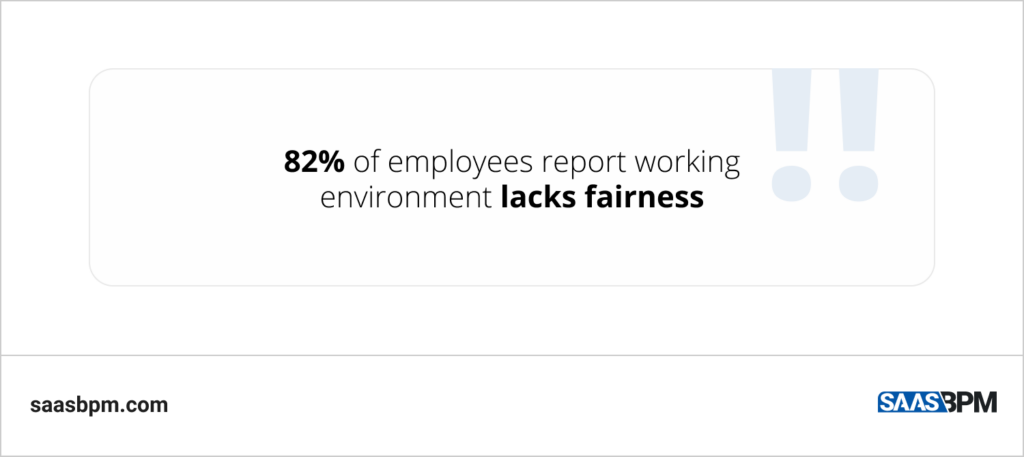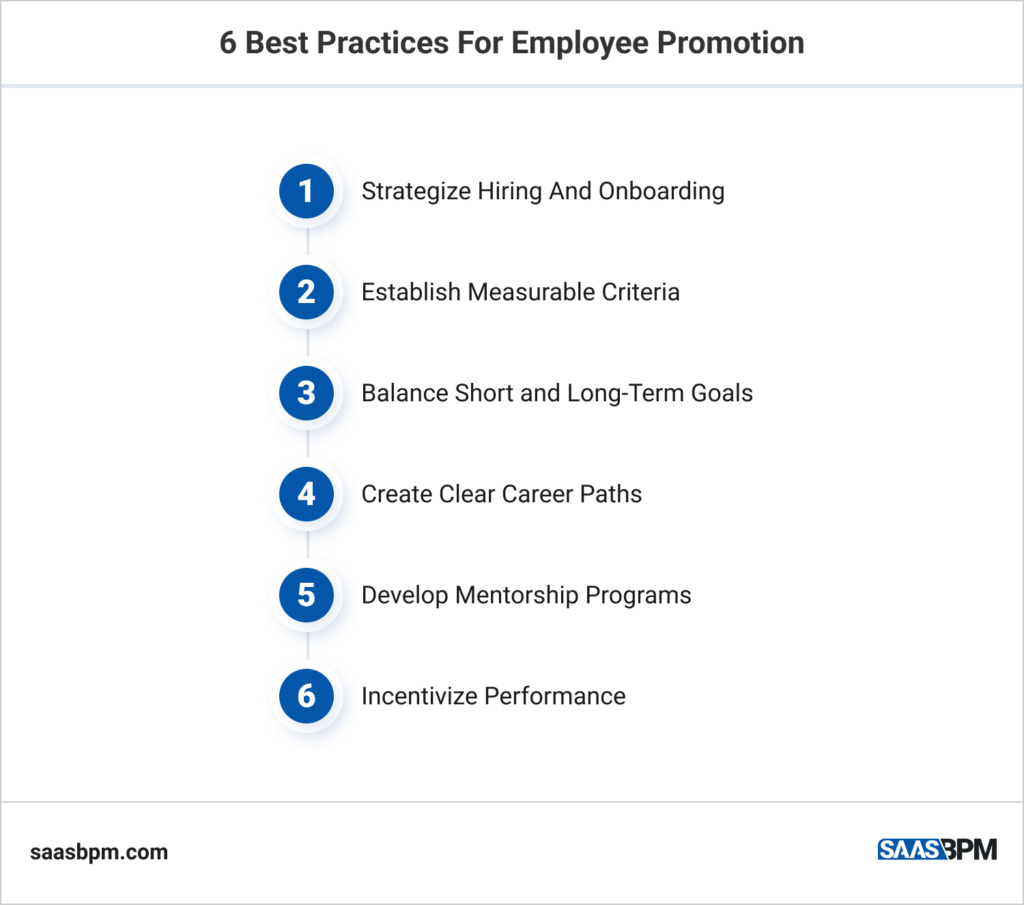Employee promotion is often a hot topic in any workplace. Some will feel it is a fair process while others may seek subjective elements behind it. One thing is true – every serious professional strives for it.
However, as internal promotion (especially in small teams) may lead to a dramatic change in the established workflows team members are used to, it needs to happen transparently and gradually. This is partially to avoid any conflicts and jealousy but is mostly true because it can lead to a peak in productivity and strive for success across the rest of the colleagues.
Therefore, employers need to make sure they structure the employee promotion process in a fair, transparent way that will inspire and encourage their teams to go the extra mile and prove themselves. More on this in our guide. Enjoy!
How To Promote Fairness In The Workplace?
Promoting fairness in the workplace is an essential component for a successful business. According to Gartner, 82% of employees think their workplace lacks fairness. So, creating transparent systems of promotion and recognition can help to ensure that rewards are based on performance, merit, and ability. Employers should take proactive steps towards creating equity in their promotion processes.

One way to do this is by measuring employee performance against objective criteria that are clearly communicated to all staff members. Additionally, employers should create systems that recognize individual contributions and provide rewards tailored to employees’ talents and efforts.
It is also important to consider long-term career goals when determining promotions within an organization. This helps ensure that employees grow with the company and have access to opportunities for professional development.
It is a good idea to break down the employee progression into stages. At each one, employers need to provide honest feedback and recognize the strengths and areas that need improvement and lay out opportunities that may lead to a promotion. With a business process management system, this can be done fairly easy from the onboarding of individuals through each project they are involved in.
Creating incentives for performance can also help promote fairness in the workplace. Bonuses, raises, or flexible work arrangements reward employees for their hard work while acknowledging individual efforts and accomplishments.
Offering these types of incentives not only encourages motivation among team members but also creates trust and transparency. After all, they are based on merit rather than pre-existing biases or stereotypes in the workplace.
6 Best Practices To Structure Transparent Employee Promotion
Promoting fairness in the workplace is crucial for any organization that wants to stand out as a leader in the market. Here are 6 best practices that can help employers ensure their employee promotion processes are transparent and equitable.

Implement Strategic Hiring And Onboarding Practices
When hiring new employees, employers should strive to make sure that the hiring process reflects a commitment to fairness and equity in the workplace. This means making sure all candidates have equal access to opportunities. This will in turn prevent any potential biases from influencing recruiting decisions.
Employers can also create an environment of inclusion by diversifying their candidate pools and assessing applicants on qualitative as well as quantitative criteria.
A streamlined onboarding process is also a surefire way to encourage productivity and dedication. It rewards timely progression through the company values, work requirements, communication across tools, etc.
Establish Measurable Criteria
Creating measurable criteria for employee promotion is essential for making promotion decisions that are based on performance, ability, and merit rather than tradition or bias.
Clearly defining what qualities you will assess — such as problem-solving skills, strengths in communication or leadership, or evidence of taking initiative — can help employers evaluate employees objectively.
These criteria should also be communicated to all staff members This way, they can work towards their career aspirations by meeting the expectations placed upon them.
Balance Short and Long-Term Goals
When creating systems of promotion it is important to take both short-term and long-term goals into account. If you focus only on immediate results, you risk overlooking employees who could show value over time.
Employers should take a holistic approach when evaluating candidates for roles. Account for what an employee has achieved over some time as well as their potential impact in the future.
Create Clear Career Paths
One way to ensure fairness in the workplace is by offering employees clear paths towards advancement within a company. It is important to consider which roles are best suited for each employee, their ambitions, and the resources available to support their growth.
By doing so, you can create a system where all team members have access to opportunities for professional development. This way you will omit barriers such as pre-existing biases or stereotypes playing a factor in who succeeds and who does not.
Develop Mentorship Programs

Mentorship programs can be beneficial when it comes to promoting fairness in the workplace. Having experienced staff members provide guidance and support to newer employees helps promote learning. Also, this way they would be able to seek valuable career advice and resources from the colleagues with more experience.
Additionally, these types of programs foster an inclusive culture, collaboration and communication between team members across all levels within an organization.
Incentivize Performance
Rewarding performance is a transparent way to encourage motivation among team members. Offering incentives that are tailored specifically to employees’ talents and efforts can help create a sense of equity while simultaneously promoting productivity.
Key Takeaways
Promoting fairness and transparency in the workplace has many advantages and should be a focus for any organization. With the six best practices mentioned above, you can structure your employee promotion process to ensure that everyone gets an equal chance for advancement and recognition.
Ultimately, by making sure that your hiring and onboarding processes are equitable and clear, you will create an atmosphere where everyone is able to reach their full potential. When this happens, every member of your team will feel more valued and appreciated for the contributions they make.
As a result, your company will get higher morale, increased productivity, improved job satisfaction and a healthier bottom line overall.
If you want more visibility of the business processes within your company and the individual performance of each employee, SaaS BPM can be the perfect solution. Reach out to find out more!

